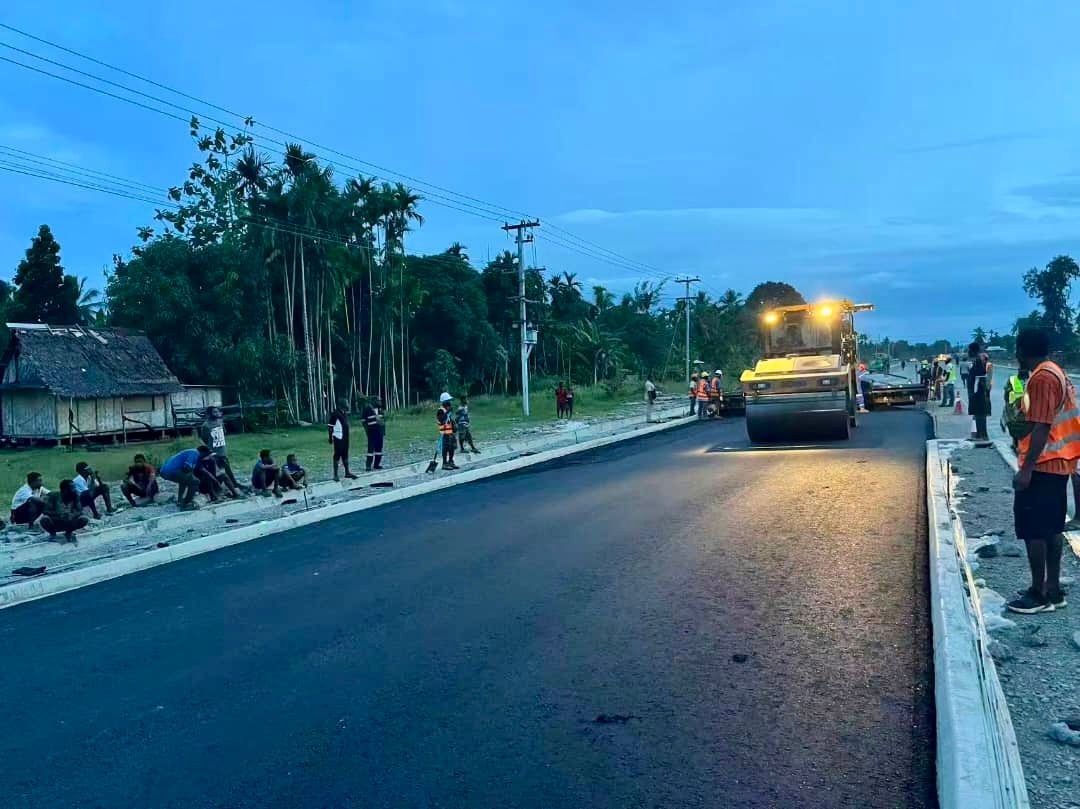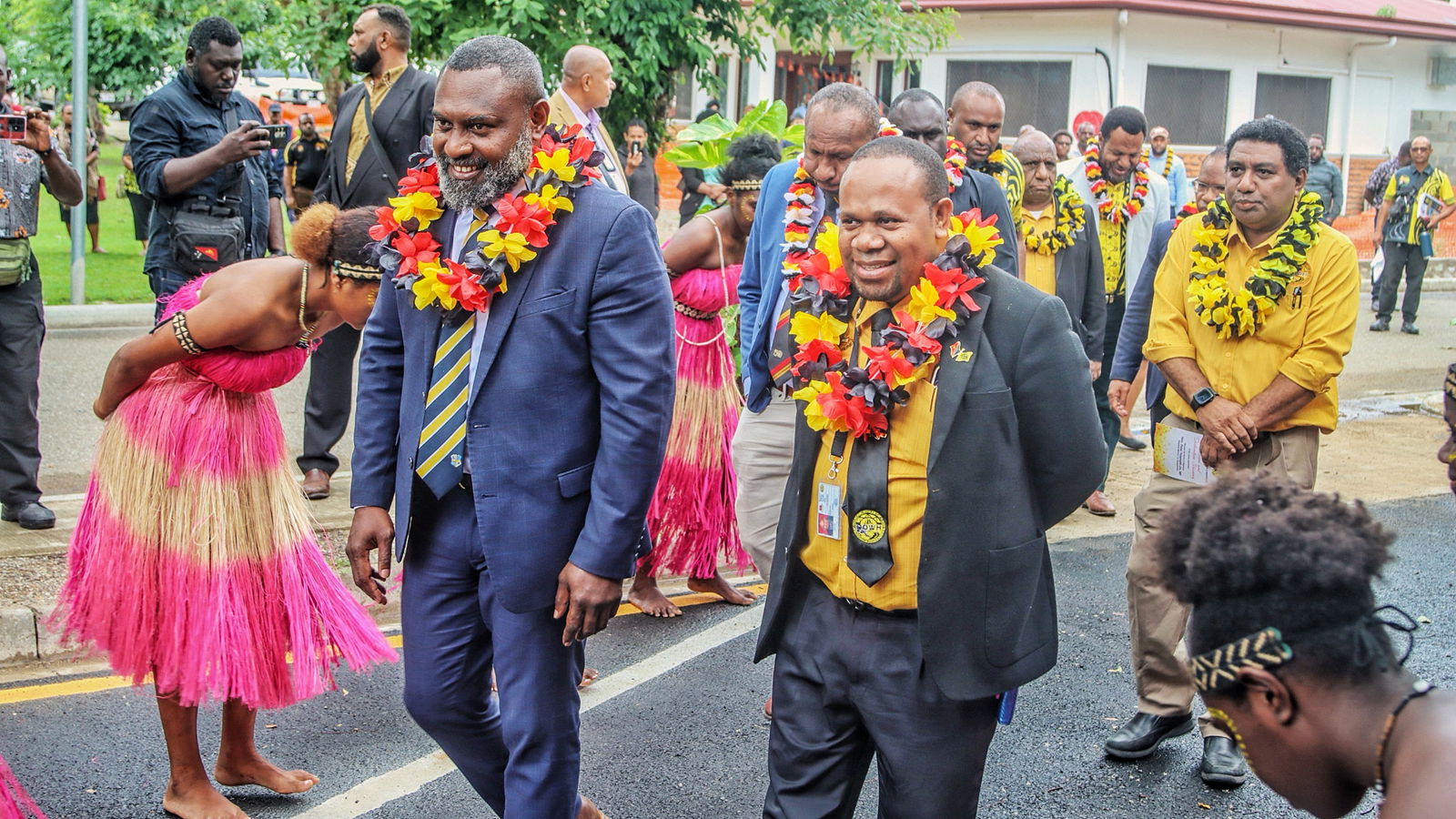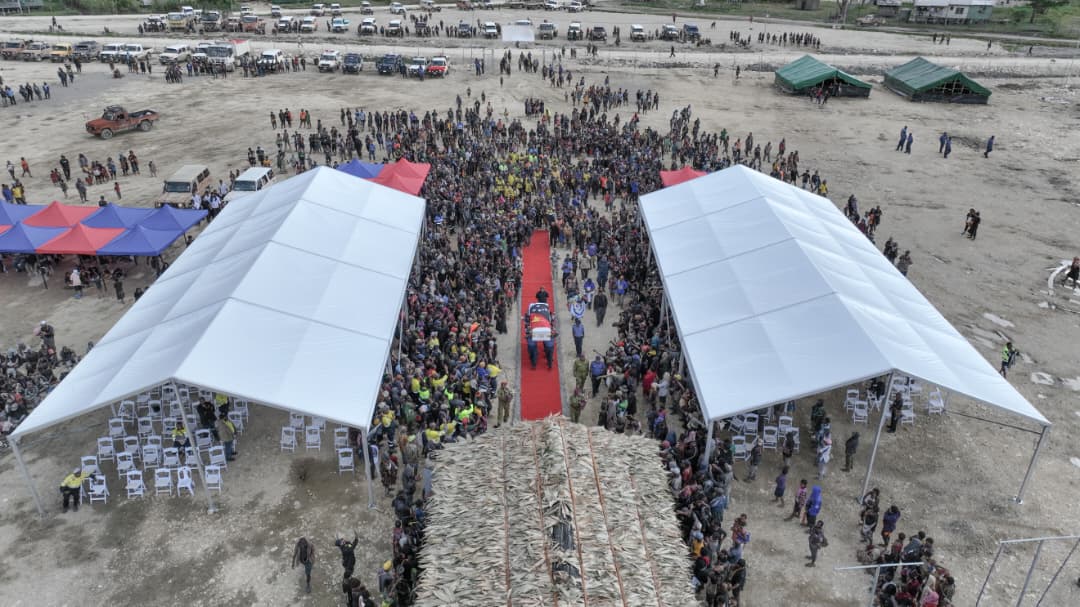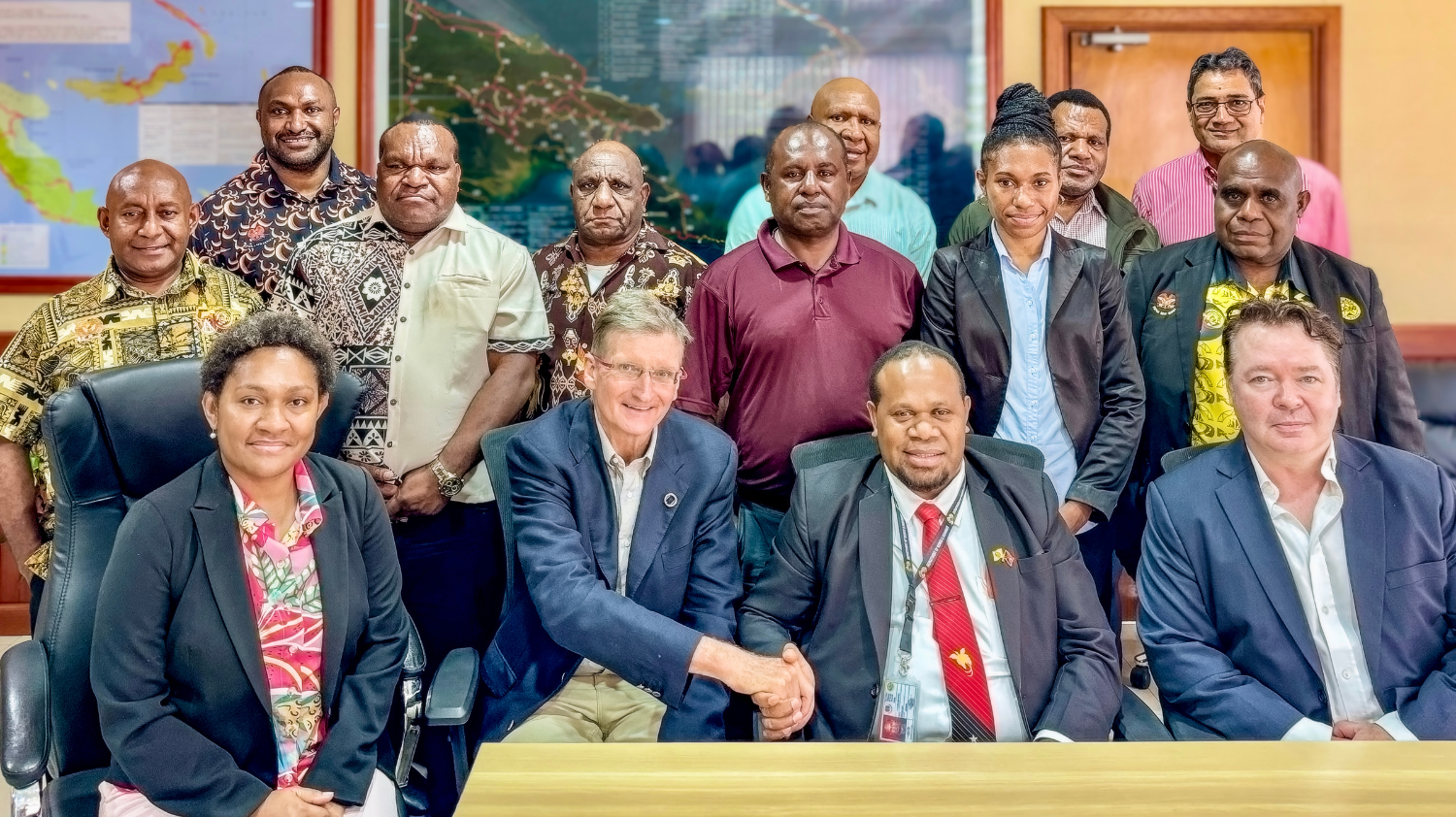Department of Works and Highways Launches Key Initiatives to Shape PNG's Infrastructure Future.
- by DoWH
- 26th December 2024

Port Moresby, Papua New Guinea – The Acting Secretary of the Department of Works and Highways (DoWH), Gibson Holemba, has outlined several pivotal initiatives aimed at transforming the country’s infrastructure landscape, focusing on transparency, road management, and future economic growth. During a live interview conducted at the FM100 Studio, 4Mile, Port Moresby on 20th December 2024, with Host Culligan Tanda, Holemba shared his insights into the department’s latest developments, including the launch of the Corporate Plan 2025-2029, the Road Management and Maintenance Plan, the Technical Audit Policy, and the newly revamped DoWH website.
Department’s Evolution and Role
The Department of Works has undergone significant reform over the years, evolving from its original mandate as a road maintenance authority to its current status as the Department of Works and Highways. Holemba emphasized that the 2020 reforms led to the department’s ability to oversee the national road network, including the management of national highways and major infrastructure projects.
He explained, “The name change reflects the expanded mandate that now includes overseeing the entire national road network, which is central to our work as the department responsible for maintaining and improving Papua New Guinea’s infrastructure.”
Corporate Plan 2025-2029: A Vision for the Future
One of the most important developments from the Department of Works is the launch of the Corporate Plan for 2025-2029. Holemba explained that the current corporate plan, which ends in December 2024, did not fully incorporate the Connect PNG program – the government’s flagship infrastructure initiative aimed at connecting every part of the country.
“The Connect PNG program is critical to our future, and as we prepare for the next phase of infrastructure development, it’s essential that we incorporate the government’s priorities into the new corporate plan,” Holemba said. The plan focuses on the first phase of the Connect PNG program, spanning from 2021 to 2027, with phase two extending from 2028 to 2034. The department’s priority is to complete essential economic corridors, which will connect major regions of Papua New Guinea.
The government has set a target to connect vital regions like Morobe, Central, and Milne Bay by 2025, with further goals in the years to come. “This corporate plan sets the course for our nation’s infrastructure development and ensures that our priorities align with national goals,” said Holemba.
Addressing Road Maintenance Challenges
A significant concern over the years has been the maintenance of existing roads, which Holemba acknowledged as a major issue. “For too long, maintenance has been neglected in favor of building new roads. This has caused many of our national highways to deteriorate,” he noted.
With the launch of the Road Management and Maintenance Plan, Holemba emphasized the importance of balancing new road construction with the upkeep of existing infrastructure. In 2025, the government will allocate almost 100 million Kina for road maintenance. The department has already begun addressing critical repairs on major highways, including the Highlands Highway and Ramu Highway, among others.
“Our priority now is to maintain the roads we already have. This plan will ensure that roads vital to the nation’s economy continue to serve the public efficiently,” Holemba stated.
Technical Audit Policy: Enhancing Accountability and Transparency
In addition to road maintenance, the department has launched a new Technical Audit Policy to ensure accountability and transparency in all infrastructure projects. The policy aims to hold the department and contractors accountable for the funds allocated to each project.
“We are committed to reporting on the performance of all infrastructure projects funded by the government. The Technical Audit Policy ensures that the quality of work adheres to national standards and specifications, which is crucial for the value of money,” explained Holemba.
The policy also facilitates third-party audits by independent consultants, helping ensure that all projects meet the necessary technical and financial requirements.
Newly Revamped Website: Real-Time Information for the Public
To further enhance transparency, the department has revamped its website to provide the public with real-time updates on ongoing projects, including the status of roads under construction, maintenance schedules, and project completion reports.
“By providing real-time updates, we allow the public to access factual, up-to-date information directly. This transparency is vital for accountability, and we want to ensure that people are informed about what is happening with their tax dollars,” said Holemba.
The new website includes detailed information on all 13 national economic corridors, with photos and progress reports for each project. The website is also designed to allow the public to report issues or provide feedback.
A Message for Papua New Guinea
In his closing remarks, Holemba assured the people of Papua New Guinea that the government’s Connect PNG program would continue to be a transformative force in the nation’s development. He highlighted the program’s potential to unlock the economic growth of the country by connecting critical corridors and enhancing trade and mobility.
“The Connect PNG program is designed to unleash the country’s economic potential. Once completed, it will drive business, trade, and tourism across Papua New Guinea,” he said.
Holemba also mentioned that, beyond roads, the department is exploring additional transport solutions, including a railway network, which will further enhance logistics and trade across the country.
As the department continues its work in 2025, Holemba’s message was clear: “We are focused on creating a connected Papua New Guinea, ensuring that no community is left behind. This is just the beginning of an exciting future.”
For more details and to watch the full interview , Visit :












